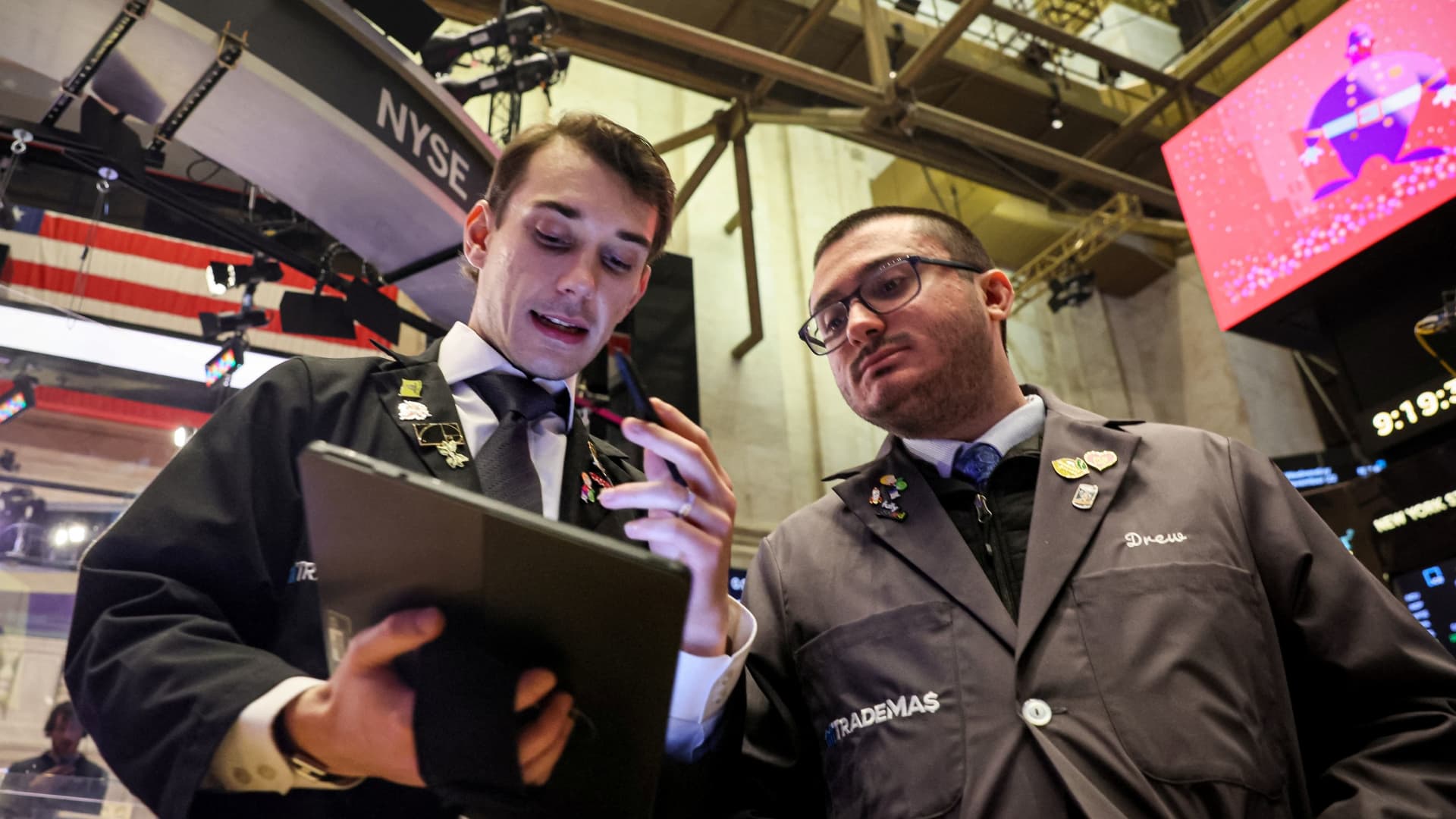Stocks have faced a mixed environment this year, according to one portfolio manager — but several should provide good investment opportunities looking ahead following a broadening of the market. “We were really challenged this year, especially in the back half of the year, still dealing with the challenges of the pandemic and unwinding a lot of excess inventory. That was exacerbated as interest rates went up,” Aaron Dunn, portfolio manager at Morgan Stanley’s U.S. Value Fund, told CNBC’s “Street Signs Asia” on Friday. The phenomenon impacted numerous companies – particularly small and mid-cap names, noted Dunn, who also holds the title of co-head of value equity at Morgan Stanley. “I think that sets up nicely for next year because I believe we’ve sort of cleaned out a lot of the excess from the past couple of years and it really [allows] a lot of companies to see real demand flow through their business and see better margins,” he added. When pressed on what stocks make good plays, Dunn responded with four names, adding: “There’s a lot of opportunities out there to pick up really good companies on the cheap.” FMC Corporation Agricultural sciences company FMC Corporation – which makes products like harvest aids and herbicides – is among the names on Dunn’s list. It made up 2.4% of his U.S. Value Fund as of Oct. 31. “If you look at FMC, to me, it’s a specialty chemical company that is probably trading closer to a commodity chemical company. So it’s a business that earns really good returns – they’ve got a very good moat around their business in terms of competitive set,” he said. Year-to-date, shares in the agricultural company are down around 57%. The stock — like others in the agriculture sector — came under pressure this year following significant declines in its inventory, Dunn noted. Going forward, he says that most of the risk has already been priced in, and “better earnings are likely to come over the next two years.” “Plus [it is] a cheap stock that provides a nice tailwind to performance,” he added. Alcoa Corp Aluminum producer Alcoa is another name that Dunn likes, as the production of lightweight cars pushes up the demand for the metal. The stock accounted for just over 2% of the U.S. Value Fund holdings at the end of October. “Alcoa is a great company that has really set themselves up from a balance sheet perspective, to lower the risk of the business … And to me today, the stock really reflects a lot of risks that have been embedded in that stock,” Dunn said. Year-to-date shares in Alcoa are down around 40%. However, Dunn said the stock stands to gain from “a lot of upside” from an increase in supply following energy restraints in China. The Asian powerhouse has been facing an energy crisis following a shortage of coal, and has since been ramping up the production of aluminum, a key ingredient in coal production. Dollar Tree Elsewhere, the value investor is bullish on value store, Dollar Tree , which made up almost 3% of the U.S. Value Fund holdings, as of Oct. 31. The company — which acquired Family Tree in 2015 for almost $9 billion — has faced challenges around worker safety this year . However, Dunn believes the company’s new management team is equipped to turn things around and “drive earnings growth.” So far, the team has already made tweaks to the store format and price points of products. “That’s a situation again, opportunistic value where we can find a business like that [which] we think is trading below intrinsic value, has a lot opportunity from the great management team to repair the business and to make it a much better business than it is today,” he said. Clorox In the consumer sector, Dunn is watching Clorox , which produces bleach and other household products. The company faced some difficulties this year, including a cyber attack and disruption to some of its IT platforms. It led Clorox’s stock price to slide significantly . Year-to-date shares are now up nearly 1% but this is ” well under its intrinsic value,” Dunn said. Other merits of the company include having the “best management team in the business” and an “excellent balance sheet,” he added. “We like to buy businesses like this, when there’s a disruption, and we deem that what we call opportunistic value … And Clorox is a great example that you have a disruption from a cyber attack, and really, the core business is very strong,” Dunn said.


























































